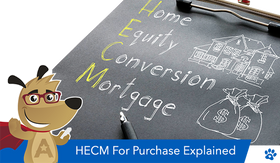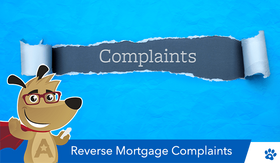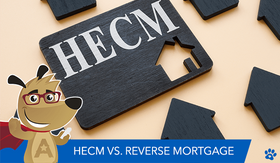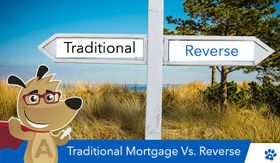Can Seniors on Social Security Get a Mortgage?
Updated March 19, 2025
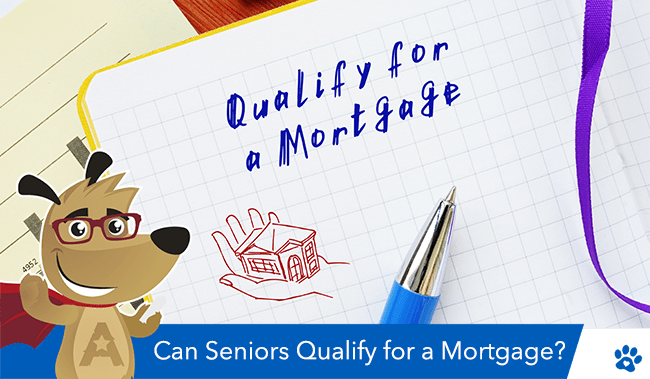
Let's get straight to the point: Yes, seniors on Social Security can get a mortgage.
While you may have discredited yourself here, the law prevents lenders from denying your application based on your Social Security status. And while a reverse mortgage is available for people age 62 and over, seniors can get any loan for which they qualify.
This means that mortgage qualifications for seniors on Social Security are the same as for any other applicant.
Qualifying factors include:
- Financial eligibility and income
- Credit history and score
- Debt-to-income ratio
Note that your Social Security may be grossed up by 25% if you qualify for a mortgage. This increase is meant to compensate for non-taxable income, which Social Security is considered to be.
But this is still harder for most borrowers to qualify for than a reverse mortgage because the reverse mortgage uses a different method. Instead of employing those debt-to-income ratios mentioned, reverse mortgages use a residual income method. When you consider that there are no monthly housing payments with a reverse mortgage, the qualification gets much easier, but we will get back to that.
Meet the expert
Michael G. Branson, CEO of All Reverse Mortgage, Inc. and moderator of ARLO™, has 45 years of experience in the mortgage banking industry. He has devoted the past 20 years to reverse mortgages exclusively.
Factor 1: Financial eligibility and income
A lender will break down your income into percentages to assess whether you can afford the mortgage. The general rules to qualify for a mortgage are:
- 28% for housing
- 38% for all other qualifying expenses
However, each lender and program may have variations in these percentages. Occasionally, a lender will allow up to a 48% total debt-to-income ratio to qualify.
That 28% under normal circumstances means that if the mortgage payment is $1,200 per month, your monthly income must be roughly $4,286 to qualify for that mortgage. There is no housing payment with a reverse mortgage, so there is no ratio to compute. For a single person in CA, your income must be at least $589 above and beyond any debts you owe, including property charges (taxes and insurance). If you have no debts, that might be as low as $1,000 to qualify if your taxes and insurance are low.
So, while a senior may very well qualify for a standard or forward loan, their chances of qualifying for a reverse mortgage are usually much better.
The best practice is to fully discuss your specific situation with a lender to get advice and make an informed decision.
» These are some of the best reverse mortgage lenders available
Factor 2: Credit history and score
To qualify for a mortgage, you must exhibit a credit history and score that proves you have the capability and means to pay your debts in a timely manner. The following adage is always applied:
It would be best if you usually had a minimum credit score 620 to qualify for a forward loan. However, other factors like income, assets, and collateral will play into the final decision. Any score over 700 is very favorable and will go a long way toward qualifying for a mortgage. Occasionally, lower scores (to 580) are considered, but that's in rare cases. While reverse mortgages conduct a credit review and a financial assessment, credit scores are not considered in the final analysis.
Factor 3: Debt-to-income ratio
The potential lender will review and compare your total debt to your total income before taxes. The ratio is then presented as a percentage. For example:
(Total Monthly Debt Payments / Gross Monthly Income) x 100
= ($1,500 / $4,000)
= 37.5%
In this example, your debt-to-income ratio is 37.5%, which means you use 37.5% of your gross monthly income to cover your debt payments. A lower ratio is generally more favorable for a standard or forward loan because it indicates you have more financial flexibility to take on new debt obligations.
However, let's compare this to a reverse mortgage. With that same income, you could have monthly debts of $3,000, including the property charges, and still qualify for the reverse mortgage (remember, there is no mortgage payment, and you only need $589 per month in the highest region to qualify - some areas it is even less).
Take a look at the numbers:
(Total Monthly Debt Payments, including property charges)
= ($3,000*)
Incl. Taxes, insurance, utility factor, car payments, credit cards, other monthly credit installments, student loans, etc.
(Total Monthly income minus all charges equals residual income.)
= ($4,000 - $3,000) = Residual Income $1,000 (must be greater than $589 for a single person
This borrower qualifies for the HECM reverse mortgage, but their ratio for a forward loan would be 75% and too high ($3,000 / $4,000).
However, each lender may have room to deviate from ratio guidelines in their programs, 75% is most likely too high for any forward lender. This is why reverse mortgages are a viable alternative for seniors on fixed incomes like Pensions and Social Security.
Want to make sure your mortgage calculations are correct? Try the Reverse Mortgage Calculator by ARLO™ to get a quote. Compare different mortgage programs side-by-side to find the best option.
Types of mortgages available to seniors
All mortgage types are available to seniors. This includes:
The HUD reverse mortgage is also available to seniors who receive social security and pension incomes and often provides better financing options than programs using qualification guidelines.
Down Payment Assistance programs sometimes offer special assistance if you're on a fixed income. Perhaps you can't save for a down payment, or you need to retain income-producing assets. Alternatively, FHA reverse mortgage loans can also be attractive because they're somewhat easier to qualify for and do not require the borrower to make a monthly mortgage payment (borrowers are responsible to pay their taxes and insurance in a timely manner).
Advice for seniors considering a mortgage
You need to ask many questions about your potential lender because it's important to understand the loan process, program requirements, closing costs, and interest rates before committing to the loan. Try:
- Obtaining and comparing an estimate of closing costs as fees can vary between lenders.
- Focusing on one lender once you're satisfied with potential costs and rates.
- Reviewing your credit report to make sure there are no mistakes on it.
- Don't get hung up on just one initial fee (i.e., appraisal cost) so that you miss others that add up to much more over the life of the loan.
There are numerous ways to look at your credit report online with no credit score ramifications. It's best to make any adjustments before going to a lender, and making changes after a lender has seen it can make qualifying harder.
» What if you don't qualify? Explore your options
Taking the leap: Seniors and mortgage approval
Seniors on Social Security have the opportunity to secure mortgages, especially since they're backed by legal protections. Your mortgage qualifications closely mirror those of other applicants, including financial eligibility, credit history, and debt-to-income ratios when you are looking at standard forward loans. We encourage you to explore various mortgage options, seek lender guidance, and diligently review your financial profiles while enjoying the prospect of homeownership during retirement. Get the facts on all loan types, including both forward and reverse mortgages, and then choose the loan type that is right for you and helps you to achieve your goals best.


